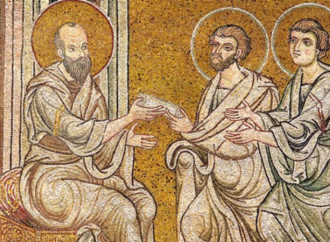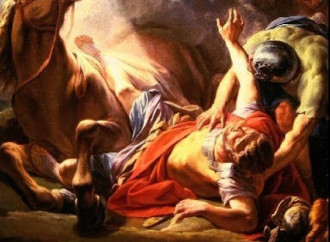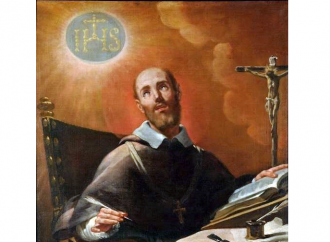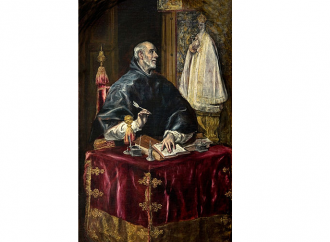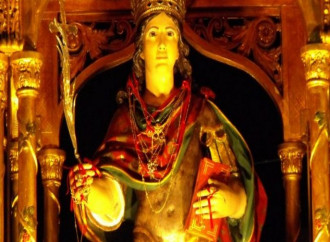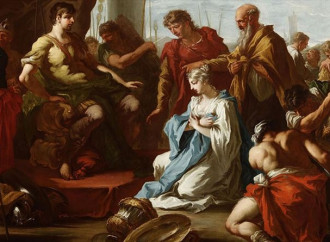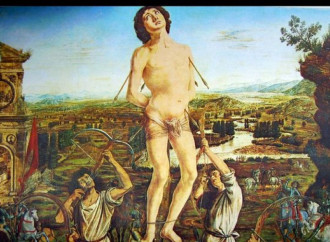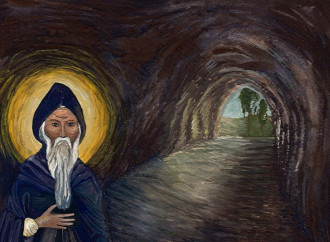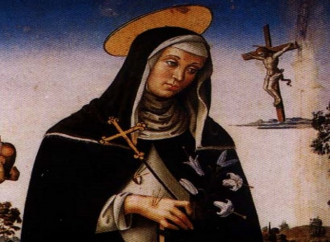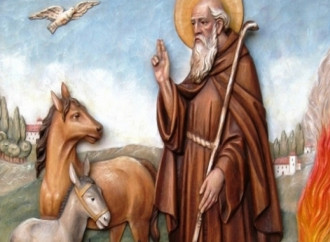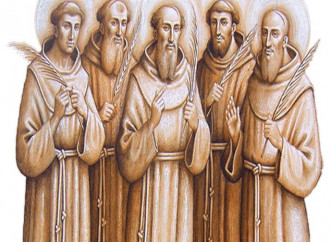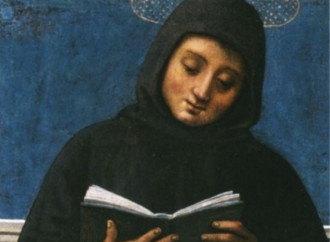Saints Timothy and Titus
The Church commemorates on the same day the holy Bishops Timothy and Titus, favourite disciples of Saint Paul and recipients of three "pastoral" letters
Conversion of Saint Paul
The feast of the Conversion of Saint Paul reminds us of the fruits produced by the acceptance of grace, capable of radically transforming one of the most active persecutors of the early Church into the greatest announcer of the Gospel to the Gentiles.
Saint Francis de Sales
An inspired writer, preacher, spiritual guide for several saints, Saint Francis de Sales (1567-1622) combined gentleness with an enthusiasm for truth, as Pius XI recalled in the encyclical Rerum Omnium Perturbationem of 1923, for the benefit of "those Catholics who as journalists and writers expound, spread, and defend the doctrines of the Church."
Saint Ildephonsus
He is renowned for a number of writings, which famously include a valuable treatise on the perpetual virginity of Mary
Saint Vincent Martyr
Vincent went to heaven on January 22nd, 304 (or 305). He is considered the first martyr in Valencia, a city which, according to Lorenzo Riber, was then little evangelised and highly pagan.
Saint Agnes
She was killed for her Christian faith when she was barely 13. Her martyrdom made a profound impression on the Christian community, giving rise to a fervent popular piety
Saint Sebastian
The ancient cult of Saint Sebastian is first documented in the Depositio martyrum of 336, a calendar with the days of the martyrs' burials used in the Church of Rome, under the date of January 20th.
Saint Macarius the Great
Monks used to call him the "Lamp of the Desert" not only because of his virtues but because his face shone in the dark
Saint Margaret of Hungary
Her aunt was the famous Saint Elizabeth. Her love for the Eucharist was accompanied by a love of poverty and the Holy Scriptures
Saint Anthony the Abbot
To explain how to distinguish between different spirits, Anthony would say that the celestial visions, unlike the demonic ones, which he fought first of all by the sign of the cross, dissolve the disturbances "as did the great archangel Gabriel with Mary and Zechariah".
Franciscan protomartyrs
Saint Francis had sent them to announce the Gospel to Muslims in Spain and Morocco. The friars Berard, Otho, Peter, Accursius and Adjutus received the blessing from Francis on the day of Pentecost and started their journey towards Spain, when the actual Reconquista was still far away (it took place only in 1492).
Saint Maurus
Most of the information about him is found in the second book of Dialogues by Pope Gregory the Great
